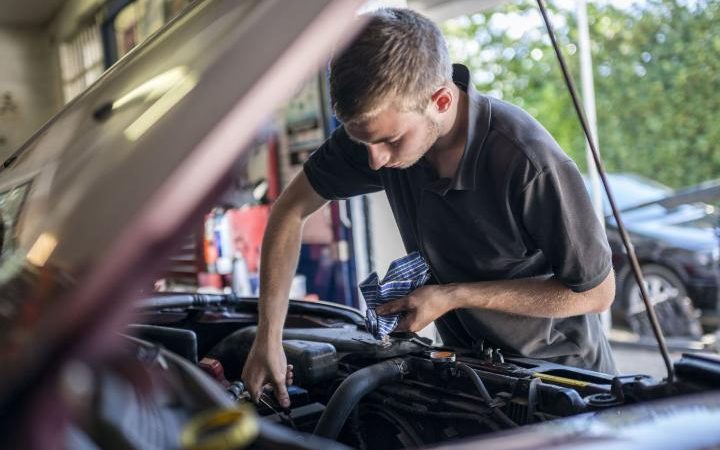Not having a full service history can wipe almost a quarter off the value of a used car, but beware of fakes
A few months ago, I felt mild panic when I couldn’t find my car’s service book. Fortunately, it turned out the garage had simply put it in its proper place at the bottom of the glovebox rather than in the door bin where I usually keep it, but I was right to be concerned about the prospect of losing it.
According to Kwik-Fit, nearly half of all used-car buyers will ignore a car without the full service history, or as the classified ads say, the FSH. If it doesn’t have a history or that record is incomplete, buyers can expect as much as 23 per cent off. With the average used car costing £7,706, that would come to £1,772. So a history is worth having if you’re selling.
The exact amount of value the history adds depends on where you live. That 23 per cent was in London, whereas in the south west it’s only 15 per cent – although that still works out at more than £1,100.
Interestingly, only 37 per cent of the 2,000 people Kwik-Fit asked said servicing by an independent garage has the same value as one from a main franchised dealer. It just goes to show the main dealers’ marble pillars still have pull.
If a car not having any history has a negative impact for the seller, it must be a positive for potential buyers. So let’s presume you’re interested in a car with a missing or incomplete history, what can you do about it.
Well, if the car has been serviced at a main dealer you can ask them for the records. Mazda has done away with the traditional service book and sensibly put the whole thing online.
Others are following slowly and the vast majority of franchised dealers keep computerised records. For about £20, many will provide you with an updated service book. Don’t be shy to ask: it is in their interests to forge a relationship with a potential new customer.
It’s more difficult if the car has dropped out of the dealer network. Independents frequently aren’t as diligent with their paperwork. And that’s if you can find the garage that did the work. It’s not hard to track down a previous owner – the DVLA will sell you their details for a fiver. But there’s no guarantee former owners will be interested in, or capable of, helping.
Now step over to the dark side with me for a moment. If it’s possible for the honest owner to add value by legitimately tracking down a service history, the less scrupulous can do so to.
It doesn’t take much internet searching to find individuals who will supply fake service histories from £9.99 upwards. Sellers of these will use real books – bought from people who work in main dealers – that are either sold empty, filled out to include bogus signatures, or just provided with dealer stamps. None of this is legal, of course. But if you move in certain circles, there are few easier ways of making a fast buck.
And that brings us back to service books adding value to used cars. If you are buying a second-hand motor and paying a premium because it’s got a full history, how do you know the service record isn’t a fake which has been purchased specifically to add value?
Well, if they’re main dealer stamps, it is easy to verify that dealer does actually exist, then check for receipts to accompany the jobs. And if you’re an owner, particularly of a car that you sevice away from the dealer network, keeping the bills is one way of allaying the fears of the suspicious and proving your car really is worth the extra you’re hoping the letters FSH bring to it.
[“source-telegraph”]






